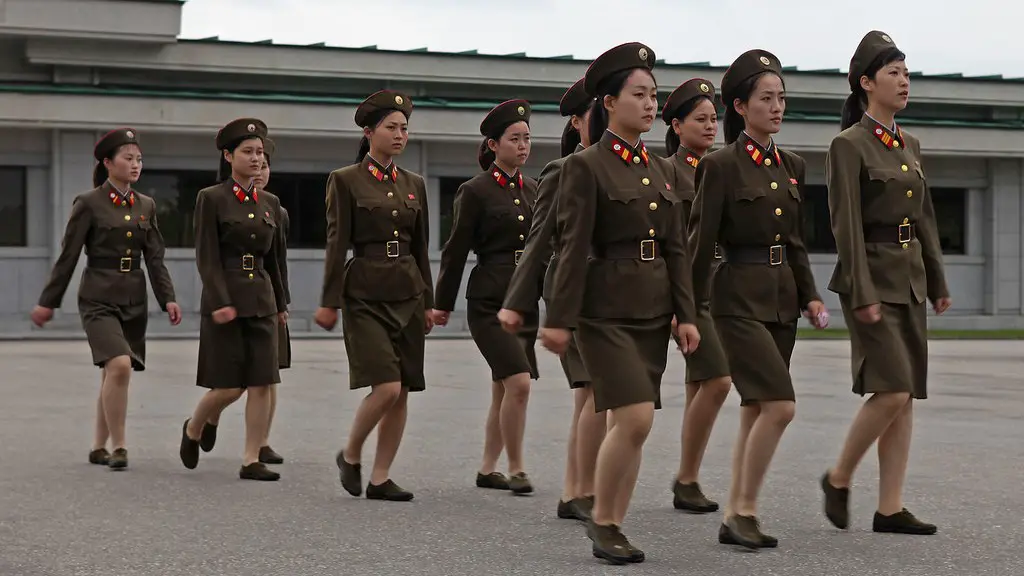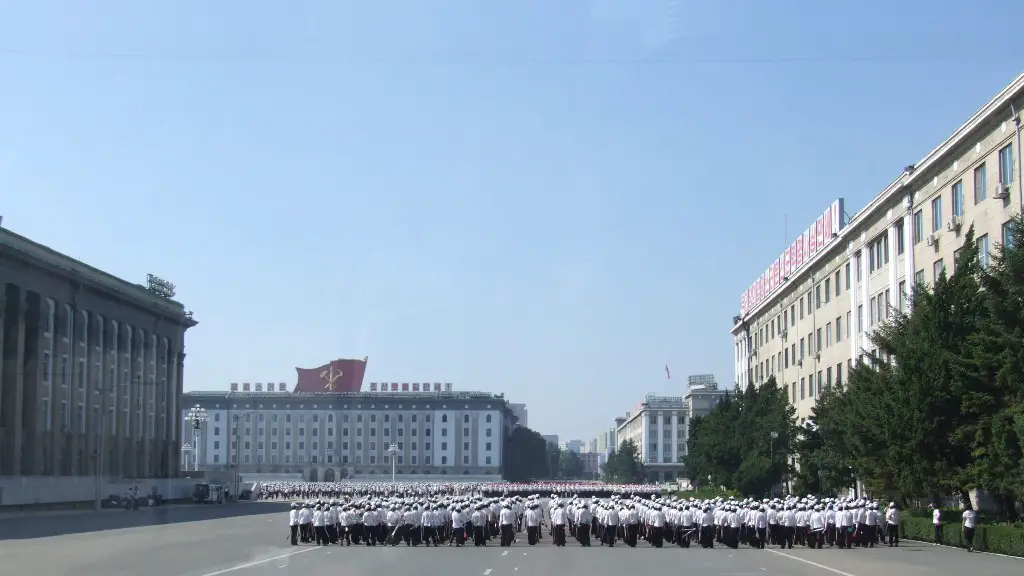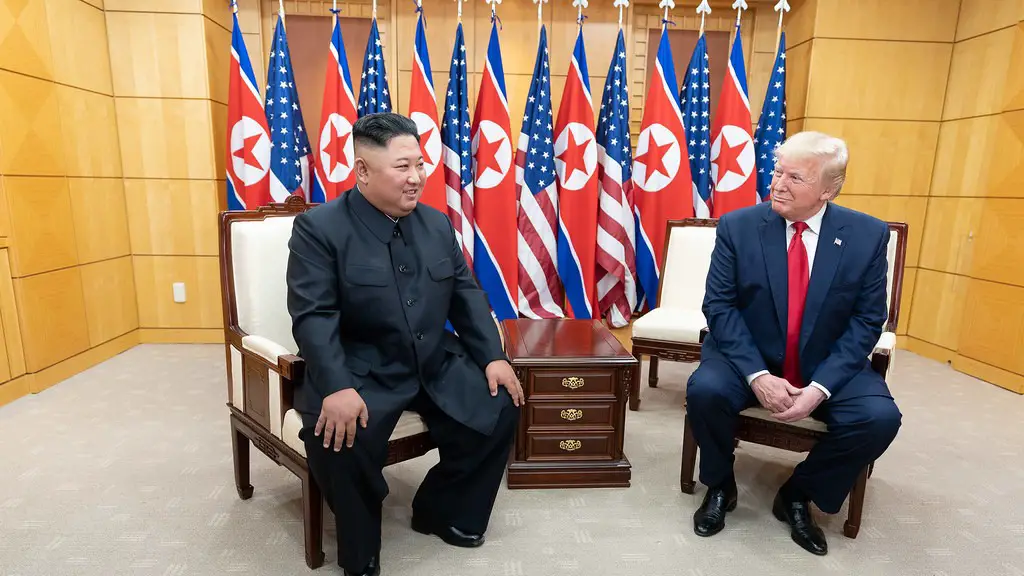North Korea has developed increasingly sophisticated nuclear capabilities in recent years, and much of the world is concerned by its apparent willingness to flex its nuclear muscle. But exactly what cities would North Korea nuke if they ever decided to do so?
Analysts believe Pyongyang has stockpiled an estimated 10 to 16 nuclear warheads, and has the capability to deliver a medium-range missile to cities in South Korea and Japan. The danger China, Russia, and the United States have of North Korea using these weapons remains unknown; however, some potential targets have been outlined based on North Korea’s former aggressive actions.
Experts say that South Korea’s capital of Seoul and Tokyo, the capital of Japan, are the most likely targets if North Korea were to use their nuclear arsenal. Both areas are economic powerhouses, and both would be hard-hit if any attack were successful. Seoul and Tokyo, both densely packed urban centers, would experience extreme destruction if nuked. Furthermore, North Korea may be more likely to target these cities due to their close proximity.
Other potential targets include U.S. military bases in the region, such as the American base in Okinawa, Japan. As tensions between North Korea and the United States continue, North Korean leaders could decide to go after a prominent target like this one. America’s military presence in the region also likely increases the chances of a nuclear attack in large areas of the Korean peninsula, and in other US bases located elsewhere in Asia.
Additionally, North Korean leaders may also target Chinese cities – Beijing, for example – in order to coincidingly symbolize Beijing’s growing diplomatic and military alliance with the United States. This could be done to signify a global power shift from China and the United States to North Korea, especially as it’s likely that Beijing and Washington are also keeping a close eye on Pyongyang’s nuclear ambitions.
It’s estimated that if North Korea did carry out a nuclear attack, the death rate in South Korea alone could be as high as 140,000 – 200,000, with millions more injured and displaced. The worst case scenario is that North Korea would use nuclear warheads on whole urban centers, potentially bringing entire countries to their knees and fundamentally shifting the international balance of power.
North Korea’s Capacity Building
North Korea has been steadily building up its nuclear arsenal for several years. Each year, Pyongyang launches an increasing number of missiles and undertakes activities that suggest that its weapons programme is continuing at an advanced rate. In 2017 alone, North Korea tested an intercontinental ballistic missile capable of hitting Alaska and tested a hydrogen bomb.
The developments in missile and nuclear technology in recent years means North Korea has raised the stakes in terms of possible targets and the damage its weapons could inflict. It is now believed that North Korean nuclear warheads could reach the continental US and that the regime has the capability to launch a nuclear weapon over a long range.
In response to North Korea’s military activities, the United Nations Security Council has imposed multiple rounds of sanctions to make it more difficult for the regime to acquire the necessary materials and components to develop their nuclear capabilities. This has been met with little success, however, as Pyongyang seems committed to pushing ahead with their weapons programme.
The Impact of a North Korean Attack
If North Korea decided to use their weapons, the consequences would be severe and far reaching. Aside from the immense loss of human life and displacement of civilians, an attack conducted by North Korea would have a deep economic and political impact on the region as a whole. The blowback from a nuclear attack by North Korea would likely cause unrest, instability, and fear throughout Northeast Asia and beyond.
The economic consequences of such an attack would reverberate through global markets, with stock prices likely to drop significantly. Additionally, the international community would be forced to respond to North Korea’s audacious act, and the chances of a wider international conflict erupting could increase significantly.
Analysts further explain that if North Korea’s attack was successful, other regimes in the region could be emboldened to acquire similar weapons and follow suit. The global nuclear order, as it stands today, would be thrown into chaos and the potential for large-scale destruction would be greater than ever.
North Korea’s Potential Motivation
North Korea is widely believed to be motivated by regime security and protection. Despite their willingness to engage with the international community, their hostile stance toward the United States shows that North Korea’s end goal is the preservation of the Kim dynasty.
Therefore, if North Korea were to nuke cities, their primary goal would likely be deterrence, i.e. to show that if the US were to attack North Korea, it would face nuclear retaliation and thus choose not to act. Control of public opinion would also likely figure prominently in Pyongyang’s decision, as a nuclear attack could be used as a last-ditch effort to generate nationalism and appreciation for the Kim regime.
International Response to North Korea
Despite the events of the last two decades, the international community has consistently maintained that the use of nuclear weapons by North Korean forces is unacceptable and that the North Korean regime must give up their nuclear programme before any meaningful talks can take place. However, the world has yet to find an effective way of stopping North Korea’s nuclear ambitions.
The United States and South Korea, with support from other regional powers, have been putting pressure on North Korea to make a deal. In 2018, US President Trump even agreed to a historic summit with North Korean leader Kim Jong Un in an effort to de-escalate tensions and is currently seeking a denuclearization agreement to be signed by Pyongyang.
Russia, on the other hand, has taken a more conciliatory approach and has actively sought to engage North Korea in dialogue. Moscow believes that the only way to bring about a lasting peace in the region is through direct negotiations between the United States and Pyongyang.
China, meanwhile, has been quietly watching the situation unfold. As North Korea’s only ally and neighbor, Beijing has a vested interest in the fate of the regime and is following events closely. Beijing is likely seeking to balance its relationship with both the US and North Korea, as any signs of aggression towards Pyongyang could lead to further tensions in the region.
North Korea’s Choice of Targets
Given North Korea’s current geopolitical climate, their choice of targets should they ever choose to deploy their weapons would likely depend on their objectives at the time. Leaders in Pyongyang will likely evaluate their options carefully and choose targets that will maximize destruction, garner world attention, and contribute to their ultimate goal – regime survival.
At present, the most likely targets are cities in South Korea and Japan, where a nuclear strike would cause massive destruction and disruption to both countries’ economies and daily lives. Furthermore, by targeting these cities, North Korea may be able to send a message to the international community, particularly to the United States, that they are willing to use their weapons if provoked.
But whatever North Korea’s eventual targets, it is certain that any use of their weapons would have a devastating impact on the region, as well as on the global balance of power. The destruction caused by nuclear weapons cannot be understated, and the international community must remain vigilant and continue to pressure North Korea to de-escalate tensions and pursue dialogue.





